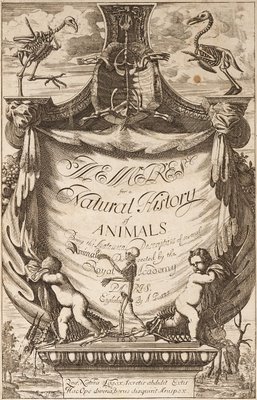
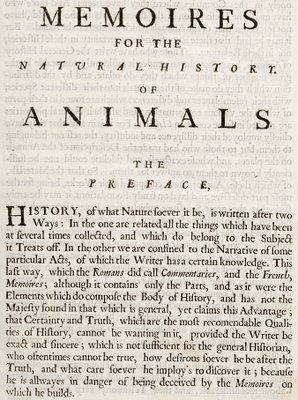
Claude Perrault (1613-1688) was without question a prodigious intellectual talent. Beyond his medical training, he earned prizes and published works on chemistry, physics and anatomy and was an early member of the French Academy of Sciences.
He was persuaded to translate the 10 books of Vitruvius and he thus developed an interest in architecture. Perrault is perhaps best known for his classicist baroque designs for the east wing of Le Louvre ('La Colonnade') and the Observatoire of Paris. Together with his (equally famous) brother Charles, Claude Perrault also published a 'Treatise of the Five Orders' of columns in architecture.
The illustrations above are from a 1688 english translation of Perrault's work : 'Memoire's for a Natural History of Animals : Containing the Anatomical Descriptions of Several Creatures Dissected by the Royal Academy of Sciences at Paris', online among the History of Science section at the wonderful University of Wisconsin digial library (note the 'gallery view' link in the sidebar) I have posted a little more than half of the engravings from the book.
"In the Description of rare Animals, which do come from Foreign Countries, we have been particularly careful to represent their external form exactly, and to denote the size and proportion of all the Parts seen without the Dissection: Because these are things almost as little known, as within the Body."Despite the assertion in the Preface, the whole-animal illustrations are oftentimes fanciful and are certainly derived from earlier works. The anatomical drawings on the other hand are more likely of historical significance.
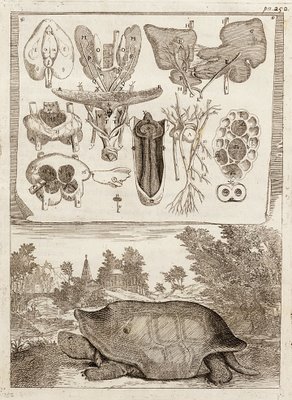
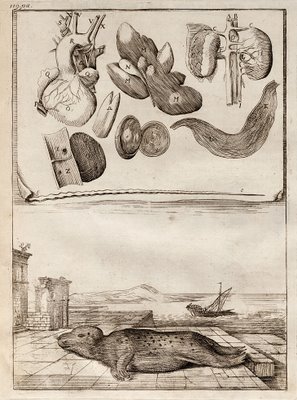
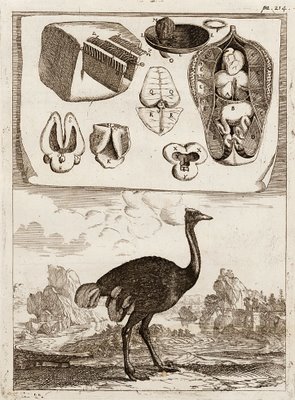
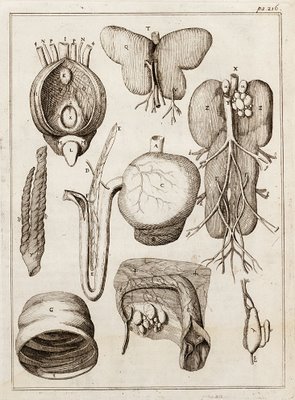
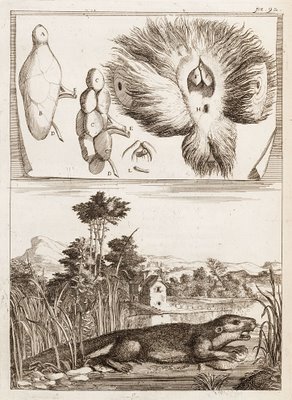
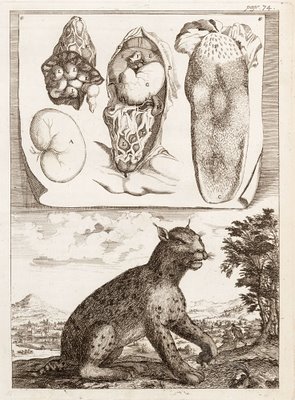
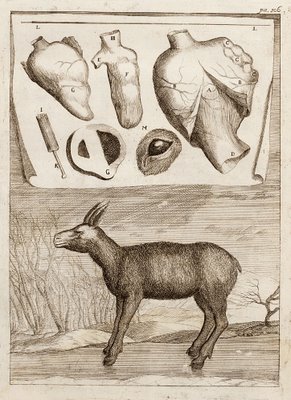
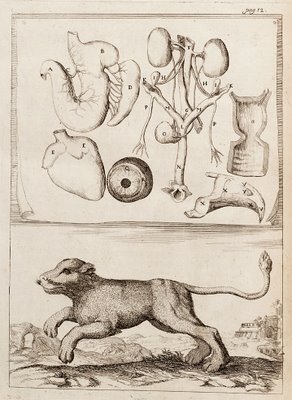
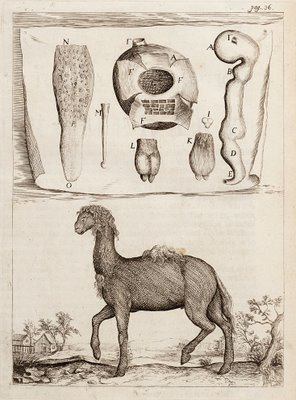
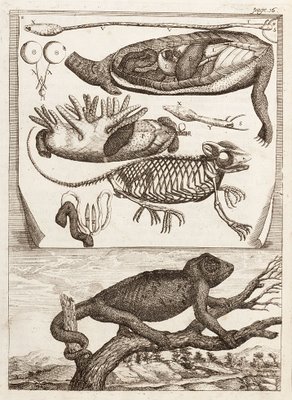
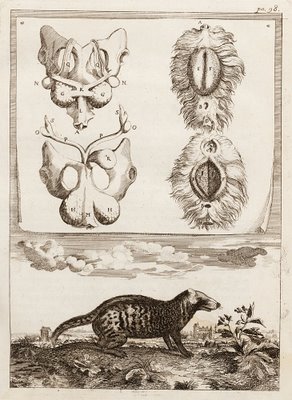
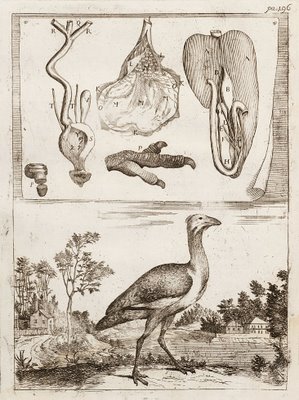
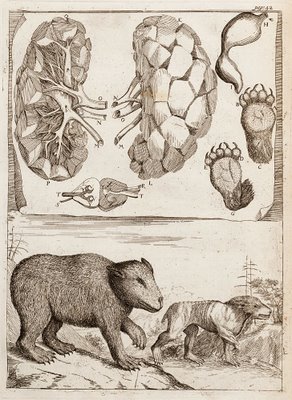
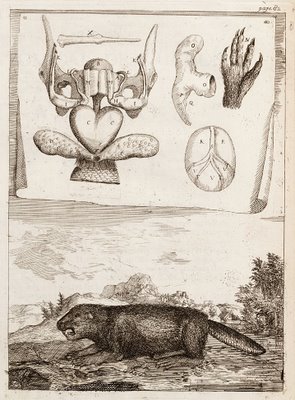
No comments:
Post a Comment